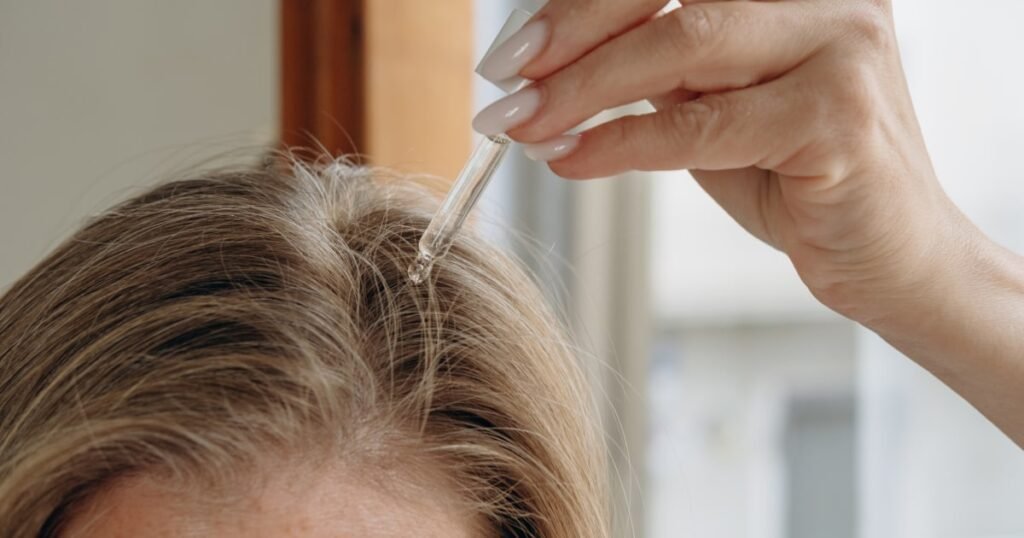Understanding Hair Loss: Causes, Treatments, and Solutions
Losing hair can be distressing, especially when the shower drain reveals more strands than expected. While it’s normal to shed 50 to 100 hairs daily, sudden changes may indicate underlying health issues. This article explores the causes of hair loss and effective treatments to combat it.
Common Causes of Hair Loss
Hair loss can arise from various factors, the most prevalent being genetics. Below are some common causes:
- Androgenetic Alopecia: This genetic condition, also known as male or female pattern baldness, leads to gradual thinning of hair.
- Hormonal Changes: Conditions such as pregnancy, menopause, and thyroid disorders can impact hair.
- Stress: Physical and emotional stress can trigger a form of hair loss known as telogen effluvium.
- Medical Conditions: Underlying health issues, such as autoimmune diseases or severe infections, may also contribute.
Signs to Watch For
- Sudden shedding in patches
- A widening part or receding hairline
- Noticeable thinning at the crown
If you’re experiencing these symptoms, consulting a healthcare provider can help identify the cause.
Effective Treatments for Hair Loss
Experts recommend a tailored approach to hair loss treatments, as results vary based on the underlying cause. Here’s a breakdown of effective options:
1. Medications
- Minoxidil (Rogaine): FDA-approved for both men and women, this topical treatment promotes hair growth by enhancing blood flow to hair follicles.
- Finasteride: This oral medication, primarily for men, helps block hormones that cause hair loss.
2. Topical Treatments
- Hair Growth Serums: Products containing active ingredients like biotin and niacinamide can support healthy hair growth.
3. In-Office Treatments
Options like PRP (Platelet-Rich Plasma) injections and laser therapy may provide additional support and stimulate follicles.
Recommended Products for Thinning Hair
Here’s a curated list of dermatologist-approved products designed to promote hair health:
Best Overall Kit
Nioxin Scalp and Hair Thickening System
- Type: Shampoo, conditioner, treatment
- Key Ingredients: Peppermint oil, biotin
- Benefits: Strengthens and thickens hair while controlling oiliness.
Best Thickening Shampoo
RevitaLash Thickening Shampoo
- Key Ingredients: Loquat leaf, biotin
- Benefits: Increases volume and hydration.
Best Topical Foam
Rogaine 5% Minoxidil Foam
- Benefits: Proven efficacy in promoting hair growth and easy application.
Best for Scalp Health
Dove Scalp and Hair Therapy Fullness Restore Serum
- Key Ingredients: Niacinamide, zinc
- Benefits: Provides hydration, strengthens hair, and soothes scalp irritation.
Additional Options
- Vegamour Gro Hair Serum: Strengthens hair and may help block dihydrotestosterone (DHT).
- BosleyMD Revive Volumizing System: A three-step system that can prevent thinning for those with non-color-treated hair.
Key Ingredients to Look For
- Minoxidil: Best known for promoting hair growth.
- Biotin and Nutrients: Essential for overall hair health.
- Argan and Tea Tree Oils: Help retain moisture and soothe irritation.
Lifestyle Changes to Support Hair Health
In addition to treatments, implementing healthy daily habits can aid in hair retention:
- Stress Management: Practices like meditation and yoga can reduce hair loss caused by stress.
- Gentle Hair Care: Avoid tight hairstyles and minimize heat styling tools to protect hair integrity.
- Nutritional Support: A balanced diet rich in vitamins and minerals can strengthen hair.
Conclusion
Sudden hair loss can be alarming, but numerous treatments and lifestyle adjustments can help mitigate the issue. By understanding the causes and seeking appropriate solutions, individuals can take proactive steps towards maintaining healthy hair. For personalized advice, consult a healthcare professional.
Recommended Further Reading
- American Academy of Dermatology: Hair Loss
- National Institute of Arthritis and Musculoskeletal and Skin Diseases
In it all, remember there’s no one-size-fits-all solution. Identifying the root cause and choosing tailored treatments can pave the way for healthier, fuller hair.


